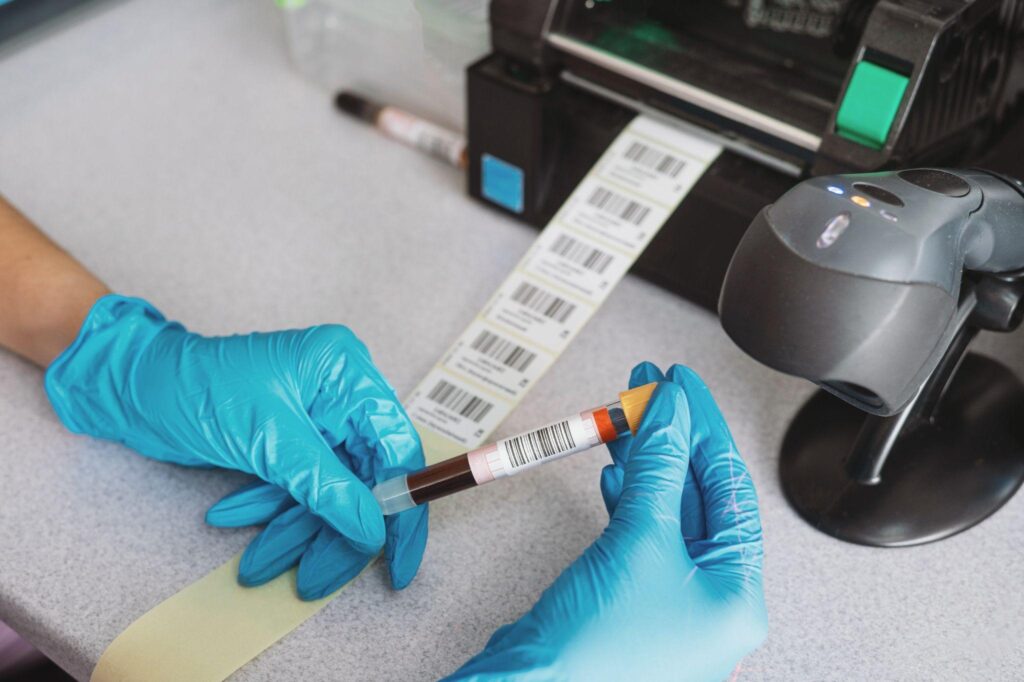Starting a family isn’t always a straightforward path. For many couples, the journey through IVF is filled with hope, but also uncertainty, especially when multiple attempts end in disappointment without clear answers.
That’s where preimplantation genetic testing (PGT) comes in.
By screening embryos for genetic abnormalities before implantation, PGT helps uncover hidden issues that may be affecting your IVF success, giving you more clarity and confidence moving forward.
At IVFLA Fertility in Beverly Hills and Murrieta, we’re dedicated to providing cutting-edge reproductive technologies like PGT to improve your chances of a healthy pregnancy. Led by Dr. Steven C. Presser and supported by our expert IVF laboratory director Dr. Arjun Kadam, our team is committed to personalized care that addresses both your medical and emotional needs every step of the way.
Understanding Preimplantation Genetic Testing (PGT)
To better understand how PGT can impact your IVF journey, let’s take a closer look at the different types of testing available and how each one plays a role in identifying potential genetic risks.
What Is Preimplantation Genetic Testing (PGT)?
Preimplantation Genetic Testing of PGT is a form of genetic testing used in conjunction with in vitro fertilization (IVF) to analyze embryos for specific genetic defects before they are transferred into the uterus.
This enables fertility specialists to select euploid embryos (those with the correct number of chromosomes), increasing the chances of a healthy pregnancy.
A 2024 study analyzing over 56,000 first-time IVF cycles found that women aged 38 to 40 who underwent PGT-A experienced a 14% increase in cumulative live birth rates compared to those who did not use PGT-A (51.3% vs. 44.8%). This suggests that PGT-A can be particularly beneficial for improving IVF outcomes in this age group.
Types of PGT
To fully understand how PGT can enhance IVF outcomes, it’s important to explore the different types of testing available. Each serves a unique purpose in identifying specific genetic risks, ensuring only the healthiest embryos are selected for implantation.
PGT-A (Preimplantation Genetic Testing for Aneuploidy)
PGT-A is a genetic screening process that examines embryos for aneuploidy, which is an abnormal number of chromosomes. A typical human embryo contains 46 chromosomes, organized into 23 pairs. However, deviations from this structure can lead to developmental issues or failed implantation.
Common conditions linked to aneuploidy include:
- Down Syndrome (Trisomy 21): An extra copy of chromosome 21.
- Turner Syndrome (Monosomy X): A missing X chromosome in females.
- Klinefelter Syndrome (XXY): An extra X chromosome in males.
PGT-A aims to identify these abnormalities before embryo transfer, increasing the chances of a successful pregnancy and reducing the risk of miscarriage. This is particularly beneficial for women of advanced maternal age, those with a history of recurrent miscarriages, or couples who have experienced multiple failed IVF attempts.
By selecting only euploid embryos (those with the correct number of chromosomes), PGT-A optimizes the likelihood of a healthy, full-term pregnancy.
PGT-M (Testing for Monogenic Disorders)
PGT-M, previously known as Preimplantation Genetic Diagnosis (PGD), focuses on identifying single-gene mutations in embryos. These mutations are often linked to hereditary conditions passed down from one or both parents. Common disorders screened through PGT-M include cystic fibrosis, Tay-Sachs disease, Huntington’s disease, and sickle cell anemia.
The testing process begins with genetic counseling to identify the specific mutation in the parents. Embryos created through IVF are then biopsied and tested with a specific probe for that mutation. Only embryos free of the targeted genetic disorder are considered for implantation, offering parents peace of mind and significantly reducing the risk of transmitting serious genetic conditions to their child.
PGT-SR (Structural Rearrangements)
PGT-SR is designed to detect structural chromosomal rearrangements such as translocations, inversions, or deletions. These abnormalities occur when parts of chromosomes break off and reattach incorrectly, potentially disrupting gene function.
Individuals carrying balanced translocations, where chromosome segments are rearranged but no genetic material is lost or gained, often show no symptoms themselves but are at a higher risk of passing on unbalanced translocations to their offspring. This can result in miscarriage, birth defects, or developmental disorders.
PGT-SR enables fertility specialists to identify embryos with proper chromosomal structures before implantation, lowering the risk of complications and increasing the chances of a healthy birth.
Who Should Consider PGT?
You may benefit from PGT if:
- You or your partner have a family history of genetic disease
- You’ve experienced multiple failed IVF cycles or recurrent pregnancy loss
- You’re of advanced maternal age, where the risk of aneuploidy increases
- You want to reduce the risk of passing on a specific genetic condition
PGT offers a proactive step in reproductive medicine, helping you make informed choices about your fertility treatment.
The PGT Process at IVFLA Fertility
At IVFLA Fertility, we follow a meticulous and compassionate approach to PGT, ensuring every step is tailored to maximize your chances of success. Here’s a breakdown of what you can expect during the PGT process with our expert team.
Initial Consultation and Genetic Counseling
The journey begins with a thorough consultation with Dr. Presser, followed by a session with a genetic counselor. You’ll discuss your family history, genetic risks, and the most appropriate forms of testing for your situation.
This initial step ensures that PGT is the right path for you.
IVF and Embryo Biopsy
Following standard IVF protocols, you will undergo ovarian stimulation and egg retrieval. After fertilization, we culture preimplantation embryos in the lab until they reach the blastocyst stage.
At this point, a few cells are removed via embryo biopsy without harming the embryo’s development.
Genetic Analysis and Embryo Selection
The biopsy for PGT is sent to a specialized lab where we perform PGT using advanced genetic technologies to analyze the embryo’s DNA.
The goal is to identify all genetic abnormalities or defects. Embryos identified as normal embryos (euploid) are prioritized for transfer.
Embryo Transfer and Follow-Up
Because of improved accuracy and sensitivity in PGT technology, the timeframe for results has also lengthened. This often requires cryopreservation of embryos while awaiting results, necessitating a frozen embryo transfer in lieu of a fresh transfer.
Although this may cause a short delay in your embryo transfer date of 4-8 weeks, the benefits of having the knowledge enabling your doctor to preselect healthy embryos to transfer with a significant impact on overall success rates outweigh the downside of waiting.
Once you have your transfer, you will know within 10-12 days if you are pregnant. Our team continues to monitor your health and pregnancy progress, ensuring the best possible outcome. If you’re undergoing a mosaic embryo transfer, we provide additional counseling and careful follow-up.
Benefits of PGT: Enhancing Fertility Outcomes
When considering PGT as part of your IVF journey, understanding its potential benefits can help you make an informed choice. Let’s take a closer look at how PGT enhances fertility outcomes and supports healthier pregnancies.
Increased Success Rates
Choosing a euploid embryo significantly improves implantation rates and reduces the risk of miscarriage. Studies published by the American Society for Reproductive Medicine (ASRM) have shown that PGT-A increases live birth rates per transfer, especially in women over 35.
Reduced Risk of Genetic Disorders
By using preimplantation genetic testing-monogenic, you can avoid passing on serious genetic conditions like cystic fibrosis or Tay-Sachs disease. This is especially important if both partners are known carriers of monogenic disorders.
Decreased Miscarriage Rates
Chromosomal abnormalities are a leading cause of miscarriage. Preimplantation diagnosis for aneuploidy helps identify embryos with the correct number of chromosomes, reducing early pregnancy loss.
Informed Family Planning
PGT empowers you with information to make critical decisions about your reproductive health. It can be a valuable alternative to prenatal testing or prenatal diagnosis, offering reassurance before pregnancy begins.
Cost of PGT in Los Angeles
Understanding the costs involved is key to planning your PGT journey. Here’s a breakdown of what to expect and the financial options available.
Breakdown of Expenses
The cost of PGT can vary based on the type of testing performed and the number of embryos tested in addition to the standard IVF fees. It’s best to check with your clinic what the price of PGT would be for your specific situation
Insurance and Financial Assistance
While not all insurance plans cover genetic testing for monogenic disorders, our team will help you explore options and determine eligibility. We offer financial counseling to make treatment more accessible.
Clinical Trials and Research Opportunities
IVFLA Fertility frequently participates in clinical studies and investigational programs that may reduce costs for qualifying patients. Ask about current opportunities during your consultation.
Choosing IVFLA Fertility for Your PGT Journey
With over 34 years in assisted reproductive technologies, Dr. Presser leads a compassionate and knowledgeable team. Dr. Kadam, our lead embryologist, ensures that genetic analysis is accurate and timely, even with non-invasive preimplantation genetic techniques under evaluation.
State-of-the-Art Facilities
Our clinic is equipped with a world-class IVF lab designed to support advanced genetic screening and embryo preservation. We follow the latest methods of preimplantation genetic testing and uphold the highest lab safety standards.
Personalized Care Approach
We don’t believe in one-size-fits-all treatments. Your journey with us includes customized protocols, one-on-one guidance, and emotional support every step of the way.
Ethical Considerations and Support
As with any advanced medical procedure, it’s important to consider the ethical implications of PGT. At IVFLA, we prioritize both ethical integrity and emotional support throughout your journey.
Understanding the Ethical Landscape
Use of preimplantation genetic testing raises important ethical questions. At IVFLA, we ensure that all procedures align with ASRM guidelines and respect your beliefs and values.
Counseling and Emotional Support
PGT can be emotionally taxing. We provide access to licensed counselors and emotional wellness resources to support your mental health through every phase of your fertility journey.
Frequently Asked Questions (FAQs)
1. Is PGT safe for embryos?
Yes, embryo biopsy is a well-established procedure with minimal risk to embryo development.
2. How long does the PGT process take?
The full cycle, including IVF and testing, takes about 4 to 6 weeks.
3. Can PGT guarantee a healthy baby?
While PGT reduces the risk of certain genetic defects, no test can guarantee 100% health.
4. What are the success rates of PGT at IVFLA?
Our PGT-A patients report significantly improved implantation and live birth rates.
5. Does insurance cover PGT procedures?
Some plans do, especially for those with a known genetic disorder. We can help verify your coverage.
Conclusion: Empowering Your Reproductive Choices
Preimplantation genetic testing offers more than just improved pregnancy rates. It brings peace of mind, reduces the risk of genetic issues, and supports healthier families. At IVFLA Fertility, we combine world-class science with compassionate care to guide you every step of the way.
To explore if PGT is right for you, schedule your free consultation today. Together, we’ll take the next step toward your dream of parenthood.




